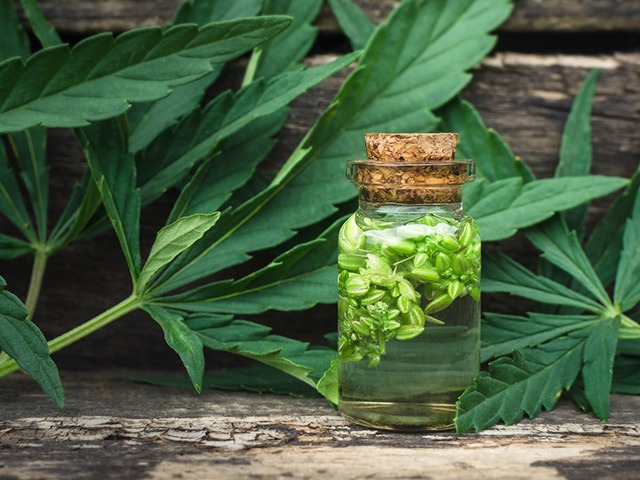In recent years, there has been a surge of interest in the potential benefits of cannabidiol (CBD) for managing stress and anxiety. As the world becomes more fast-paced and demanding, finding natural solutions to help alleviate these common issues has become a priority for many. CBD, a non-intoxicating compound derived from the hemp plant, has emerged as a potential candidate for promoting relaxation and calmness. In this blog post, we will delve into the science behind CBD and anxiety, exploring its mechanisms of action, potential benefits, and considerations for those considering its use.
Understanding Anxiety: A Modern Epidemic
Anxiety is a natural response to stress, signaling the body to be on alert and prepared to face potential threats. However, when anxiety becomes chronic and overwhelming, it can lead to a range of negative effects on mental and physical well-being. According to the World Health Organization (WHO), anxiety disorders are the most common mental health condition worldwide, affecting around 264 million people.
Traditional Approaches vs. CBD
Conventionally, anxiety has been managed through psychotherapy, medication, and lifestyle changes. While these methods can be effective, they may not be suitable for everyone and can sometimes come with unwanted side effects. This has led to a growing interest in alternative therapies, including natural compounds like CBD.
The Science Behind CBD and Anxiety
CBD interacts with the body’s endocannabinoid system (ECS), a complex network of receptors and neurotransmitters that plays a crucial role in maintaining balance (homeostasis) in various bodily functions. Research suggests that CBD may influence the ECS to regulate mood, stress response, and anxiety.
One key way CBD may impact anxiety is by enhancing the effects of the neurotransmitter gamma-aminobutyric acid (GABA). GABA is responsible for reducing neuronal excitability, leading to feelings of relaxation and calmness. Some studies have shown that CBD may increase GABA signaling, potentially contributing to its anxiolytic (anti-anxiety) effects.
Moreover, CBD has been found to interact with serotonin receptors, which are implicated in mood regulation and anxiety. By influencing these receptors, CBD may help modulate serotonin levels, which are often imbalanced in individuals with anxiety disorders.
Clinical Evidence and Studies
While research on CBD and anxiety is still in its early stages, several promising studies have highlighted its potential benefits. A 2015 review published in the journal Neurotherapeutics suggested that CBD could have therapeutic potential for various anxiety disorders, including generalized anxiety disorder (GAD), social anxiety disorder (SAD), and post-traumatic stress disorder (PTSD).
In a 2019 study published in The Permanente Journal, researchers investigated the effects of CBD on sleep and anxiety. The study involved 72 participants, with 57 experiencing anxiety and 25 experiencing poor sleep. The results showed that anxiety scores decreased in 79.2% of participants, and sleep scores improved in 66.7% of participants within the first month of CBD use.

It’s important to note that while these studies are promising, more extensive research is needed to fully understand the long-term effects, optimal dosages, and potential interactions of CBD with other medications.
Considerations and Caution
Before incorporating CBD into your anxiety management routine, there are several important factors to consider:
- Consult a Healthcare Professional: It’s crucial to speak with a healthcare provider before starting any new supplement or treatment regimen, especially if you have pre-existing medical conditions or are taking other medications.
- Quality Matters: Not all CBD products are created equal. Look for products that have undergone third-party testing for purity and potency. Full-spectrum CBD products contain a range of cannabinoids and compounds that may work synergistically, known as the “entourage effect.”
- Start Low and Go Slow: If you decide to try CBD, begin with a low dosage and gradually increase it until you find the optimal dose for your needs. Monitoring your body’s response is essential.
- Individual Variability: Everyone’s body reacts differently to CBD. What works for one person may not work the same way for another. It may take time to find the right product and dosage that works best for you.
Conclusion
The potential benefits of CBD for managing stress and anxiety have captured the attention of many seeking natural alternatives to traditional treatments. While the science is still evolving, early research suggests that CBD may influence the body’s endocannabinoid system to promote relaxation and reduce anxiety symptoms. However, it’s important to approach CBD use with caution, consulting a healthcare professional and carefully selecting high-quality products. As interest in CBD continues to grow, further studies will undoubtedly shed more light on its potential as a valuable tool in the fight against anxiety. Want to know more about the science behind CBD and anxiety? Then you can learn here!


